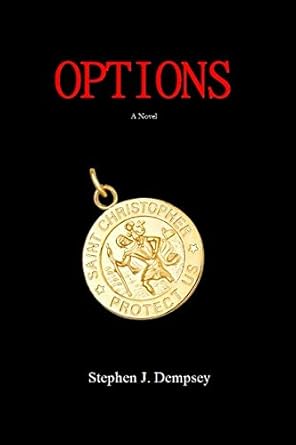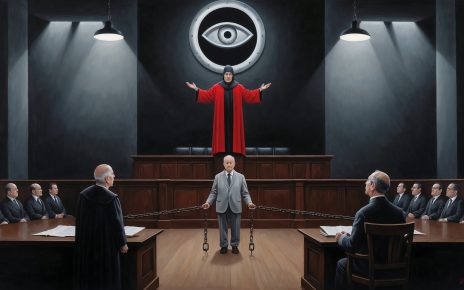Prologue
The morning he stepped out of South Station, Boston felt like a verdict. Wet brick, ferry horns, the shiver of a gull’s cry over steel water. He stood a moment under the awning with his father’s old briefcase in hand, breath wisping pale, and watched the crowd carry its coffees toward another ordinary day.
Procedure first. Then the hunt.
He heard his father say it the way he always had at the kitchen table, coffee cooling beside a chessboard. The voice lived in cassette hiss now, and in the slanted blue ink of spiral notebooks stacked inside the case. He had played the tapes until the heads wore smooth. He had traced the loops of his father’s handwriting with a fingernail until the paper went shiny. Twenty years of one name threading every page like wire.
Karen Wyman.
The case that made and then unmade his father. The girl who walked out of a November and never returned. The girl whose absence had turned into a map of men and motives, and at the center of it a bright, steady flame of a dismal accountant.
He crossed to the rental car, slid behind the wheel, and set the briefcase on the passenger seat. The latch clicked open with the same small bark it had given since he was ten. He didn’t touch the recorder yet. He took out the top notebook and let it fall open where the spine wanted. A page with dark strokes, the urgency of a long night.
Saliva on the passenger door of Karen’s Pinto. Congruent DNA. A hair plucked from a brush during an interview years later that linked to the old stain. Those were not rumors or hunches. Those were measurements. His father’s voice on a tape that said he had confronted his top suspect with it and listened to the man’s careful breathing thin out on the line.
He closed the book. The city was waking in reflections on the windshield. He could almost see his father’s hands on the wheel, careful, broad-knuckled… and then his mother’s hands, white on the banister, knuckles whitening more with every headline. Following her husband’s death on that ‘shootout’ on Lake George, she did not even make it to spring. A note, a last apology, and bathwater gone cold. He had cleaned the tub himself. He had thrown the bottle of pills away. He had decided, on a floor that smelled of bleach, that he would spend every God-forsaken hour he was given on the hunt his father hadn’t been allowed to finish.
He drove to the harbor and parked where the wind dragged the smell of salt and diesel through the seams of the car. He pressed Play.
His father’s voice filled the car in that soft clatter of plastic and magnetized tape, low and even, walking a suspect through a memory that would not hold. He knew every bend and pause. He knew exactly where the man on the other end began to measure his words like steps along a ledge.
He stopped the tape right before the click. He did not need the end. He had learned to hear more in the space after words than in the words themselves.
The last scene played behind his eyes, unspooling the way crime scenes do once you have stood inside them long enough that your eyes stop wanting and simply record. A lakeside lodge where heat struggled against deep winter. Snow tracked into a room where blood had already cooled to a dark gloss. The Bureau file called it a shootout. The Bureau file named his father a reckless cop gone too far; one who had cut a corner, and had paid with his life. The Bureau file had a neatness to it that felt like a made bed in a room that still smelled of sleep.
He had not been there that night, but he had walked it afterward the way his father would have: meticulously.
Chair legs scuffed through semi-dry blood arcs. A rug shifted to cover one drag. The window latch reset although the frost along its brass seat told a different story. And his father outside on the dirt with his service pistol placed in his right hand like a prop. The right thumb didn’t show the crescent of residue it should have. The web between thumb and forefinger was clean. The slide locked back although the magazine still showed a full count. Someone who didn’t know his way around that model had racked it empty and then forgotten to burn a round. Someone had wiped the slide, too, leaving a smear that glowed under ALS across the rear serrations and the backstrap… a smear with a ridge pattern not his father’s, a partial that never found a match because the report never looked hard enough.
He could hear his father again in his mind, patient, almost amused. Don’t let what you want to be true bulldoze the Truth.
He had cataloged the rest in a small, sickened calm. The glove imprint on the trigger, a faint lattice of latex that told its own quiet story. The watch face fractured and stopped at a time that did not fit the call logs from the neighbor who called it in. The ejected casing they said was his lay under a chair on the wrong side of the room for a right-hander at that angle. The weapon angled in his father’s fingers, trigger resting under the pad of the middle joint, not the first, and the hand was too relaxed, rigor having already set in elsewhere. The greatest insult of all was the thing meant to be convincing… the pistol jammed into a dead man’s loose grip like a child shoving a toy back into a box. It wreaked of incompetency. So, naturally, the Bureau swallowed it utterly and completely. Fools!
He sat very still and let the wind rock the car. The harbor slapped its gray hands together and together and together.
He thought this would pass. He thought the storm would erase his footprints by morning.
The house on Oakridge had held proof that the storm had not erased everything. His father’s desk, paper-clipped strings of names pinned to dates and places. Phone logs with initials that became full names when cross-checked against corporate filings and alumni lists. Written statements from his father’s lead suspect that did not quite hold water.
He pulled a manila folder from the briefcase. Boston PD’s cold-case summary on Karen’s disappearance was thin as air. His father’s annotated copy was not. Notes in margins. Arrows that crossed the page and doubled back. Two things had always bothered his father about the night Karen vanished. The Pinto had been stashed in the backwoods in Vermont. But the driver’s seat position was manually moved much further back, far from the notch a smaller woman would use. Add to that a flake of vomit later tested on the car door matched a man who swore never rode with her that or any other night. The line his father drew from that door to a hairbrush was what had lit the fuse.
He closed the folder and the case with it. The wind eased. Church bells sounded from somewhere behind the wharf and counted out the hour. He watched a man in a dark coat buy a paper on the corner and knew the outline before the face turned. Neat hair with not a single gray hair at the temples. An accountant’s gait. Though, surprisingly, an athlete’s physique. Despite this, he held a posture practiced for conference rooms and board meetings.
He did not get out. Not yet. Procedure before the hunt. He sat and watched the man fold the paper, slip it under his arm, and move on. He watched until the coat disappeared into a wash of glass doors and revolving reflections. He let his breath out slowly and found that his hands had curled on the wheel.
Careful. You only get one first move.
Memory reached for him then, sudden as a bag holding skeletal remains from inky water. A house too quiet. A hallway that went on and on. His mother’s slippers perfectly parallel on the mat. His father’s empty chair sitting in his study, weighing down the room with a somber emptiness that didn’t rest. The bathroom tap still running. He lived with that hallway in his mind. He ran it in his sleep some nights, his feet never touching down. He carried the silence at the end of it like a second heart. He lost not one, but two parents, because of this devil of a man he now hunted.
He put the car in gear and eased into the stream of fast-moving city vehicles. Seas of roofs and windows opened and closed as he moved through them. He did not have to say the words out loud. He knew why he was here. He knew why he would stay until his bones ached and his eyes burned and something finally gave.
Find what his father found and was not allowed to carry home. Prove what the Lake George room tried to tell anyone willing to kneel and listen. Make the neat bed messy with the truth. Make the name that sits at the center of every page rise to the surface in a courtroom’s still air.
He turned on the recorder, not to listen this time, but to capture his own voice for the file. He said the date and the time and the street. He said the name out loud between clenched teeth that rattled with unbridled rage.
“Today I will finally bring down… Jonathan Sands.”
The tape turned. The city breathed. The hunt began!



